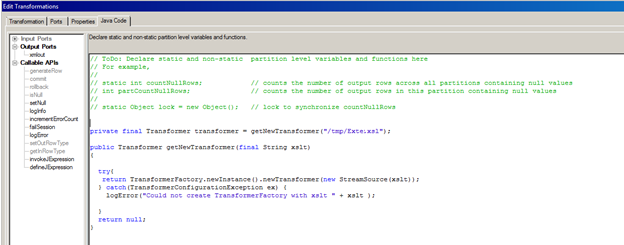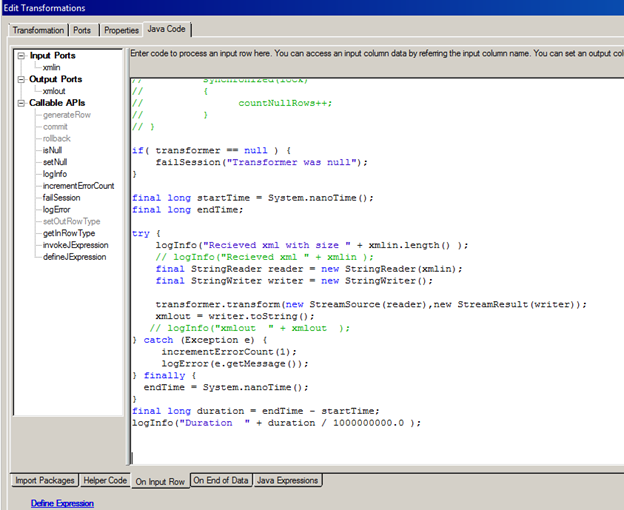One way of doing this is to use the standard Java transform and use the standard javax.xml.transform API to perform the transformation.
To do this add a Java Transform to your flow

In the Import Packages pane, import the required java packages

import java.io.*;
import javax.xml.transform.*;
import javax.xml.transform.stream.*;
In the Helper Code pane we construct a transformer object. As I understand non static fields are created per instance, so there should be no concurrency issues. (comments?)

private final Transformer transformer = getNewTransformer();
public Transformer getNewTransformer()
{
// /opt/informatica/infadev/DataTransformation
final String IFCMPath = System.getenv("IFCONTENTMASTER_HOME");
final String xslt = IFCMPath + "/ServiceDB/xst/mytransform.xslt";
logInfo("Using XSLT File" + xslt);
try{
return TransformerFactory.newInstance().newTransformer(new StreamSource(xslt));
} catch(TransformerConfigurationException ex) {
logError("Could not create TransformerFactory with xslt " + xslt );
}
return null;
}
Finally we execute the transform on the incoming xml document by executing the transform method on the transformer object.

if( transformer == null ) {
failSession("Transformer was null");
}
//final long startTime = System.nanoTime();
//final long endTime;
try {
//logInfo("Recieved xml with size " + xmlin.length() );
// logInfo("Recieved xml " + xmlin );
final StringReader reader = new StringReader(xmlin);
final StringWriter writer = new StringWriter();
transformer.transform(new StreamSource(reader),new StreamResult(writer));
xmlout = writer.toString();
// logInfo("xmlout " + xmlout );
} catch (Exception e) {
incrementErrorCount(1);
logError(e.getMessage());
logError(xmlin);
}
//finally {
// endTime = System.nanoTime();
//}
//final long duration = endTime - startTime;
//logInfo("Duration " + duration / **********.0 );
